#rudolph cartier
Explore tagged Tumblr posts
Text



















1984 (Rudolph Cartier, 1954).
43 notes
·
View notes
Text



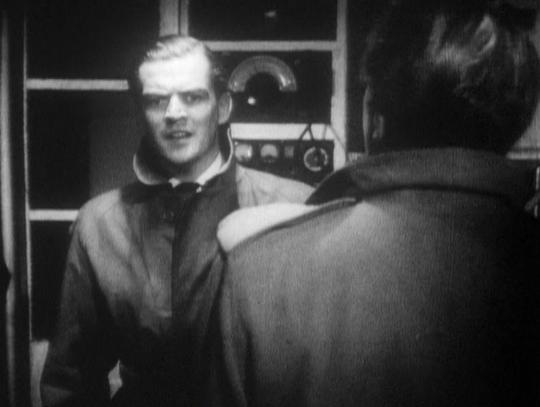
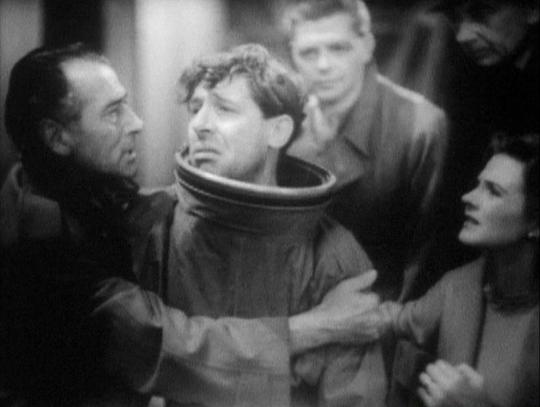
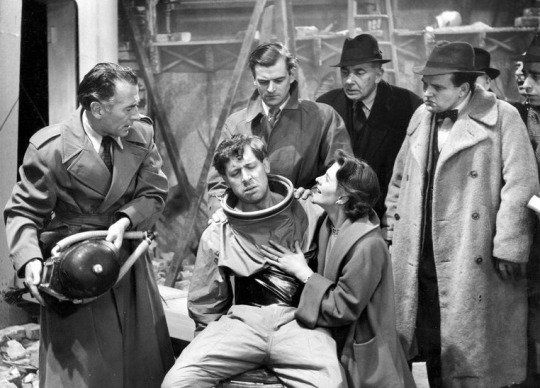

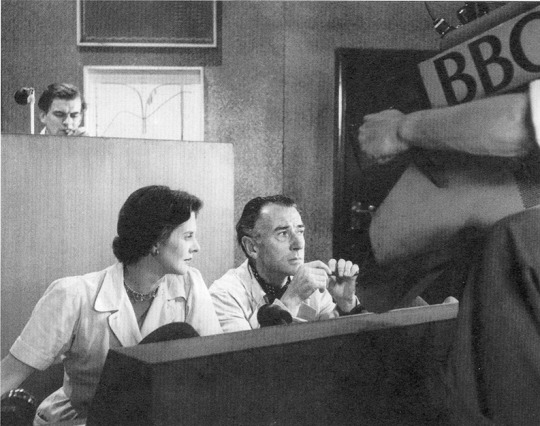

The Quatermass Experiment (BBC, 1953)
"One morning, two hours after dawn, the first manned rocket in the history of the world takes off from the Tarooma range, Australia. The three observers see on their scanning screens a quickly receding Earth. The rocket is guided from the ground by remote control as they rise through the ozone layer, the stratosphere, the ionosphere, beyond the air. They are to reach a height of 1,500 miles above the Earth and there learn...what is to be learnt.
For an experiment is an operation designed to discover some unknown truth. It is also a risk..."
#the quatermass experiment#quatermass#bbc#nigel kneale#rudolph cartier#1953#reginald tate#duncan lamont#isabel dean#paul whitsun jones#hugh kelly#john glen#ian colin#frank hawkins#moray watson#katie johnson#i recently acquired (very cheap) the blu ray upscale of Quatermass and the Pit and it's been calling to me ever since.. a long time since i#watched any Quatermass‚ a minor obsession of my misspent youth; so i decided to go back and rewatch the og trilogy#there's no end of academic writing and popular appraisal of TQE‚ celebrating both its almost immeasurable impact both on the very#genre of sci fi as well as its broader legacy in the actual nature of tv production (one of the first real not documentary tv events‚ the#serial completely changed the way popular television was perceived‚ stands as the earliest surviving example of a muti episode#british tv production and quite frankly is a uniquely vital document in brit tv history and wider culture): all that has been said so#instead I'll make a few notes of things I'd forgotten about in the years since i last saw these two surviving episodes. firstly it's#remarkable just how cynical Kneale was right from the beginning of his career; Tate's Quatermass is hard‚ even cold at times‚ and capable#of ruthlessness. the police are obstinate and difficult‚ the press amoral and unethical‚ and the interference of government officials met#with pure contempt. it's a remarkably dark plot‚ with an emphasis on implied body horror that pushes boundaries for the era#there's also a clear anti war sentiment: the rocket crash landing is widely assumed to be an attack by a foreign power‚ there are allusions#made to nuclear weapons‚ but there's also hints that some of the public suspect the weapon could be british in origin and Kneale is#adamantly not taking sides (the rocket crew also includes a german born member‚ perhaps a nod to Cartier‚ an Austrian who had fled Nazi#Berlin before the war). considering the age and the quality of the recordings these eps stand up incredibly strongly today
12 notes
·
View notes
Text

Yvonne Mitchell-Bill Travis "Passionate summer" 1958, de Rudolph Cartier.
5 notes
·
View notes
Text

Acrylic painting of André Morell as Professor Bernard Quatermass from the BBC’s Quatermass and the Pit.
#Quatermass#quatermass and the pit#andre morell#nigel kneale#traditional art#acrylic painting#acrylics#bbc#martians#professor bernard quatermass#iainjclarkart#portrait#painting#artists on tumblr#rudolph cartier#fan art#science fiction#sf fanart
6 notes
·
View notes
Video
youtube
How Peter Cushing and George Orwell made each other famous – Nigel Kneal...
#youtube#bbc#peter cushing#george orwell#nigel kneale#1984#rudolph cartier#live tv drama#so much face crime!
3 notes
·
View notes
Text

Watching
1984 Rudolph Cartier UK, 1964
#watching#1984#George Orwell#Rudolph Cartier#Peter Cushing#Donald Pleasence#Yvonne Mitchell#André Morell#television#British television
1 note
·
View note
Text

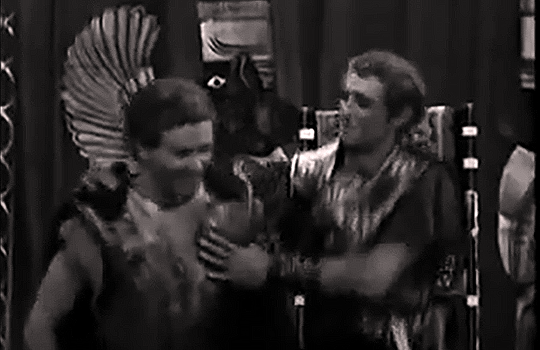
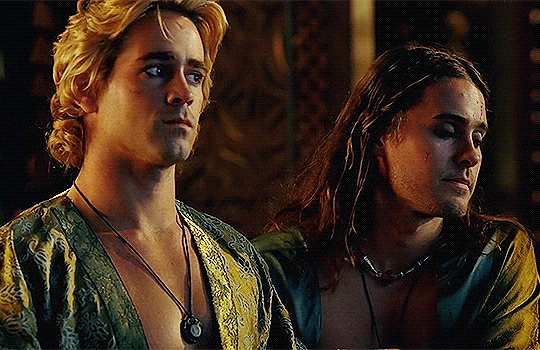
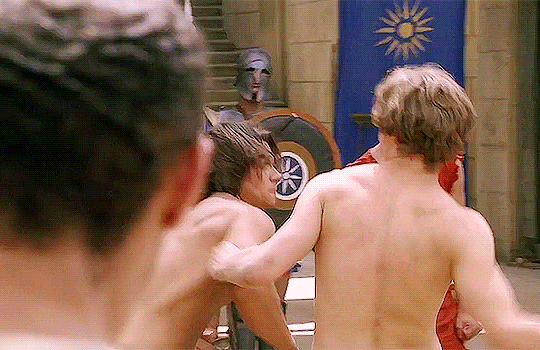

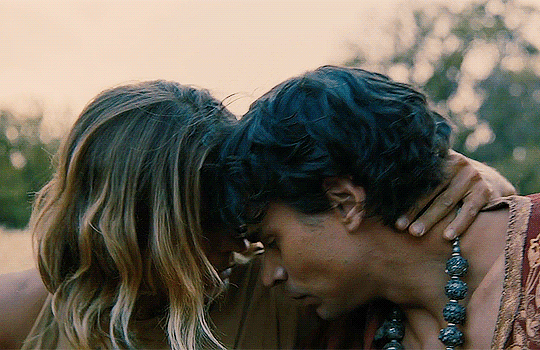

Alexander and Hephaestion in Film/TV throughout the years.
Alexander the Great (Robert Rossen, 1956)
Adventure Story (Rudolph Cartier, 1961)
Alexander (Oliver Stone, 2004)
Young Alexander the Great (Jalal Merhi, 2010)
Alexander, the Great (Terra X, 2014)
Ancient Empires (History Channel, 2023)
Alexander: The Making of a God (Netflix, 2024)
#alexander the great#hephaestion#alexander x hephaestion#alexander 2004#history channel ancient empires#alexander the making of a god#mygifs*#history: alexander the great#history: hephaestion#otp: for he too is alexander#i'm SURE i'm missing a documentary or two but these are all the ones i'm aware of that include hephaestion!!#pls let me know if you know of any other!!#also it's a chaotic gifset bc like the quality for some of these are all over the place#but!!!! here we go the boysss
422 notes
·
View notes
Text
NINETEEN EIGHTY-FOUR (1954, BBC TV LIVE) – Episode 147 – Decades Of Horror: The Classic Era
“Now then, come on there. Them stew with salt and them stew without. Come on, now.” Isn’t it wonderful to have options in your diet? Join this episode’s Grue-Crew – Chad Hunt, Whitney Collazo, Daphne Monary-Ernsdorff, and Jeff Mohr – as they take in the telerecording of a live performance of Nineteen Eighty-Four (1954), based on Nigel Kneale’s adaptation of George Orwell’s famous novel and featuring Peter Cushing in possibly his best performance.
Decades of Horror: The Classic Era Episode 147 – Nineteen Eighty-Four (1954, BBC TV Live)
Join the Crew on the Gruesome Magazine YouTube channel! Subscribe today! And click the alert to get notified of new content! https://youtube.com/gruesomemagazine
ANNOUNCEMENT Decades of Horror The Classic Era is partnering with THE CLASSIC SCI-FI MOVIE CHANNEL, THE CLASSIC HORROR MOVIE CHANNEL, and WICKED HORROR TV CHANNEL Which all now include video episodes of The Classic Era! Available on Roku, AppleTV, Amazon FireTV, AndroidTV, Online Website. Across All OTT platforms, as well as mobile, tablet, and desktop. https://classicscifichannel.com/; https://classichorrorchannel.com/; https://wickedhorrortv.com/
In a totalitarian future society, Winston Smith, whose daily work is re-writing history, tries to rebel by falling in love.
Director: Rudolph Cartier
Writers: Nigel Kneale (adapted as a television play by), George Orwell (novel)
Selected Cast:
Peter Cushing as Winston Smith
André Morell as O’Brien
Yvonne Mitchell as Julia Dixon
Donald Pleasence as Syme
Arnold Diamond as Emmanuel Goldstein
Campbell Gray as Parsons
Hilda Fenemore as Mrs. Parsons
Pamela Grant as Parsons Girl
Keith Davis as Parsons Boy
Janet Barrow as Woman Supervisor
Norman Osborne as First Youth
Tony Lyons as Second Youth
Malcolm Knight as Third Youth
John Baker as First Man
Victor Platt as Second Man
Van Boolen as Barman
Wilfrid Brambell as Old Man / Thin Prisoner
Leonard Sachs as Mr. Charrington
Sydney Bromley as Waiter
Janet Joye as Canteen Woman
Harry Lane as Guard
Richard Williams as Narrator
Nigel Kneale as Telescreen Announcer (voice) (uncredited)
Roy Oxley as Big Brother (uncredited)
Join the Grue-Crew for a very special episode featuring a review of the 1954 BBC TV presentation of Nineteen Eighty-Four (originally an episode of BBC Sunday-Night Theatre) starring Peter Cushing in a break-out role alongside André Morell, Yvonne Mitchell, and Donald Pleasence. The original presentation on December 12, 1954, was controversial and unrecorded. Thankfully for genre fans and Peter Cushing fans alike, BBC programmed a second live show on December 16 which was recorded and remains available today. Check out what the Grue-Crew have to say about this slice of British television history. Let’s just say they were gobsmacked.
At the time of this writing, Nineteen Eighty-Four is available to stream from the Classic Sci-Fi Movie Channel and is available as a Blu-ray disc (Playback Region B/2) from BFI.
Gruesome Magazine’s Decades of Horror: The Classic Era records a new episode every two weeks. Up next in their very flexible schedule is one chosen by Whitney, Even the Wind is Afraid (1968, Hasta el viento tiene miedo), written and directed by Carlos Enrique Taboada, starring Marga López, and credited as having revitalized the Mexican horror genre.
Please let them know how they’re doing! They want to hear from you – the coolest, grooviest fans: leave them a message or leave a comment on the Gruesome Magazine YouTube channel, the site, or email the Decades of Horror: The Classic Era podcast hosts at [email protected]
To each of you from each of them, “Thank you so much for watching and listening!”
Check out this episode!
1 note
·
View note
Photo

Nineteen Eighty-Four | TV | Rudolph Cartier | 1954
Peter Cushing
121 notes
·
View notes
Audio
Hammer Film Productions begins their journey into horror with THE QUATERMASS XPERIMENT (1955)! From director Val Guest, this sci-fi horror flick makes a splash on British and American silver screens.
Context setting 00:00; Synopsis 37:53; Discussion 54:43; Ranking 1:14:01
#podcast#horror#hammer film productions#hammer horror#sci fi#val guest#anthony hinds#richard landau#nigel kneale#the quatermass experiment#the quatermass Xperiment#brian donlevy#richard wordsworth#jack warner#david king-wood#margia dean#maurice kaufmann#bbc#michael barry#rudolph cartier#golden age of television#british horror#lippert pictures#robert lippert
4 notes
·
View notes
Text
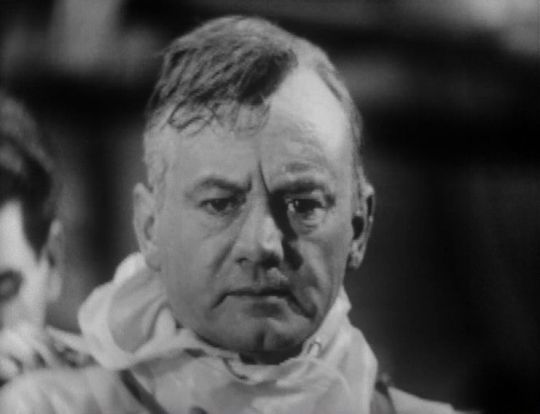
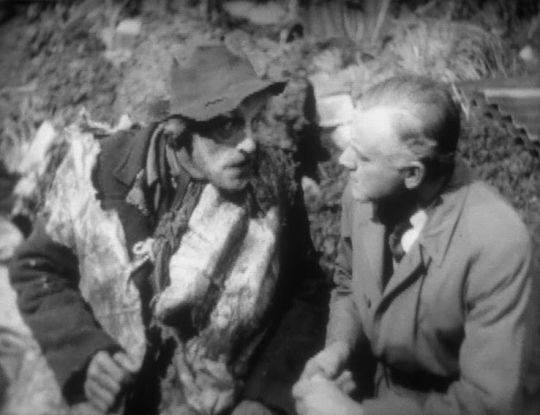
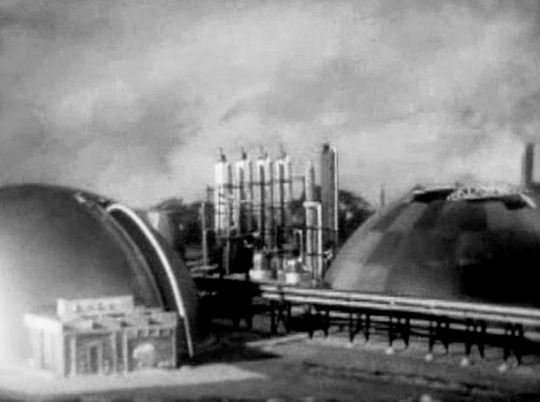
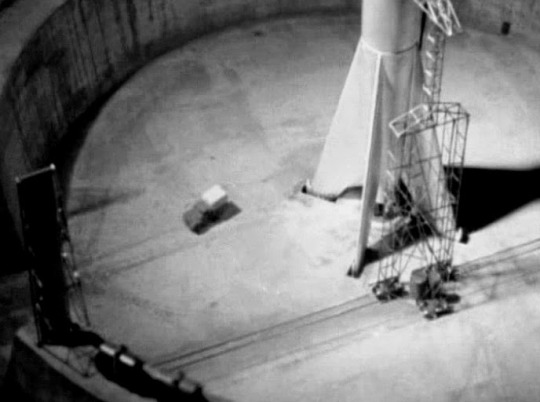

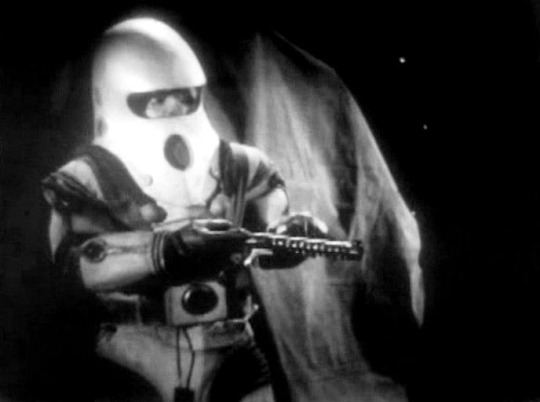
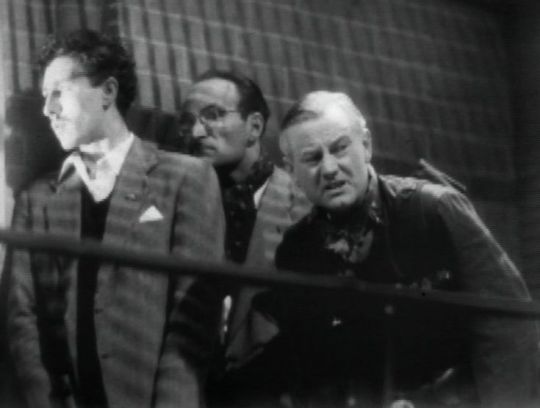

Quatermass II (BBC, 1955)
"Enemy territory ahead. Hard, unwinking stars. No atmosphere to deceive us. We're seeing them as they really are. And somewhere ahead... an object. Constructed, if it is constructed, by creatures whose very existence makes us fools. Somewhere. Boneless creatures able to make energy at will by changing their mass; able to transmit experience; to maintain power over other creatures."
#quatermass ii#nigel kneale#quatermass#bbc#1955#rudolph cartier#john robinson#monica grey#hugh griffith#john stone#austin trevor#rupert davies#roger delgado#michael golden#john miller#john rae#ian wilson#derek aylward#wilfrid brambell#hilda barry#I've always sort of felt that Kneale's 2nd quatermass serial didnt have quite the cultural impact of his 1st or 3rd; i genuinely believe#that might be partly down to the vaguely underwhelming title (it's no Experiment or Pit). regardless it might be my favourite in terms of#plotting; Kneale at his most intensely paranoid and misanthropic‚ an hysteria tinged conspiracy thriller of universal implication#Robinson gets a hard time in reviews for his portrayal‚ but he had a tough job; he was a last minute re cast after prev Quatermass Reginald#Tate's sudden death just a few weeks before production began. Robinson does visibly struggle with some of the scientific jargon and dense#technobabble but he's generally p good. alas‚ a taut and harrowing 5 episode set up is all but undone in the profoundly disappointing part#a mixture of shoddy fx‚ bad science and a sudden grinding halt to the action ends one of Kneale's darkest works on a resounding whimper#still it's a minor miracle we have the whole series to enjoy and the preceeding 5 eps are a superb example of very adult sci fi for tv#also what a cast! a pre stardom Rupert Davies crops up for one ep‚ baby Roger Delgado is very tragic‚ oscar winner Hugh Griffith is#Quatermass' right hand arm... a special bit of old tv and a damn good story that still stands up today
2 notes
·
View notes
Photo
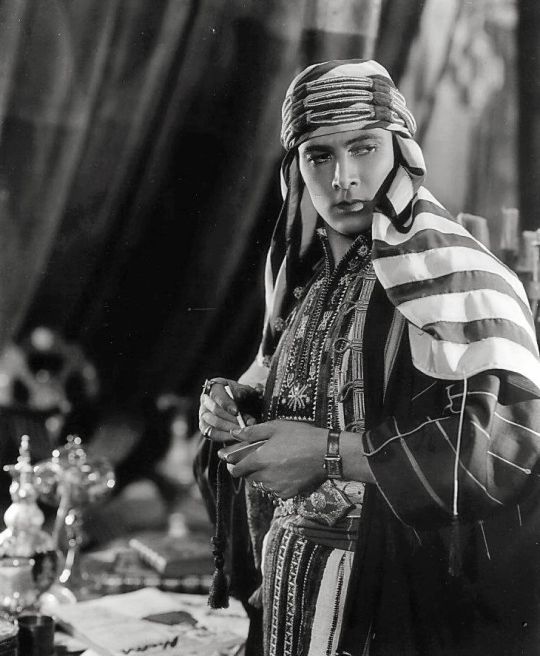
Rudolph Valentino wearing his prized Cartier Tank watch in the 1926 film, “The Son of The Sheik.”
#rudolph valentino#the shiek#vintage#vintage watches#wristwatches#old hollywood#cartier#cartier watch#vintage hollywood#timepiece#vintage timepiece#men's fashion#men's vintage fashion#vintage fashion
337 notes
·
View notes
Photo

Nineteen-Eighty-Four (1954) UK 107m, B&W Director: Rudolph Cartier; Cast: Peter Cushing, André Morell, Yvonne Mitchell, Donald Pleasence As a BBC television adaptation of George Orwell’s 1949 novel, Nineteen-Eighty-Four is technically limited stage-like production, that nevertheless, captures the ominous essence of a dystopian future ruled by big brother and enforced by the thought police.
5 notes
·
View notes
Text
Best Jewelry at the 2021 Golden Globes
Although the Golden Globes were virtual this year the gems were all but real. The stars brought forth their jewelry A-game and boy did they not disappoint! From Nicole Kidman’s very special and treasured earrings to Regina King’s $2 million diamond gems we’re recapping some of the most incredible jewelry spotted at the 2021 Golden Globes. Stay tuned for part 2 of our coverage! REGINA KING: …

View On WordPress
#2021 Golden Globe Jewelry#Amanda Seyfriend&039;s Forevermark jewelry at the 2021 Golden Globes#Angela Bassett&039;s jewelry at 2021 Golden Globes#Best Jewelry at 2021 Golden Globes#Cynthia Erivo&039;s Wempe diamond earrings at 2021 Golden Globes#Emma Corrin&039;s Cartier jewelry at 2021 Golden Globes#Julia Garner&039;s Verdura jewelry at 2021 Golden Globes#Kyra Sedgwick&039;s Chopard jewelry at 2021 Golden Globes#Lily Collins&039; Cartier jewelry at 2021 Golden Globes#Maya Rudolph&039;s Ana Khouri Phillipa ear cuffs at 2021 Golden Globes#Nicole Kidman&039;s jewelry at the 2021 Golden Globes#Regina King&039;s Forevermark Jewelry at 2021 Golden Globe Awards#Rosie Perez&039;s Lorraine Schwartz jewelry at 2021 Golden Globes#Sarah Hyland&039;s Lorraine Schwartz diamond mesh earrings#Susan Kelechi Watson&039;s Kwiat jewelry at 2021 Golden Globes#Tina Fey&039;s Fred Leighton jewelry at 2021 Golden Globes#Tina Fey&039;s Pomellato Iconica necklace at 2021 Golden Globes#Viola Davis Pomellato jewelry at 2021 Golden Globes#Yalitza Aparicio&039;s Daniela Villegas jewelry at 2021 Golden Globes
0 notes
Note
what kind of faces would you want to see for the spymaster of the summer court?
– ♡ hi there, dear! the admin team would absolutely love to see the spymaster for the summer court taken! i have a few faceclaim suggestions for the role, but so long as they are appropriate, feel free to bring in whoever you feel works best!
gemma chan, seo yi-ji, constance wu, daniel henney, lucy liu, ming-na wen, rahul kohli, fan bingbing, harry shum jr., sui he, deepika padukone, sonam kapoor, suraj sharma, angelababy, kim woo-bin, lee jong-suk, lee min-ho, maureen wroblewitz, bae doona, willy cartier, neelam gill, tina desai, brenda song, adeline rudolph, lewis tan, hyun bin, lyrica okano, tati gabrielle, victoria park, and yoon so-hee to get you started!

2 notes
·
View notes
Photo



QUILL&PAD: The Sense And Non-Sense Of Watches In Movies Starring Cartier, Seiko, Bremont, Omega, And More
There was a time when viewers didn’t consciously pay that much attention to what kind of wristwatch movie characters wore.
This often meant that actors wore their personal watches on set, sometimes even when it didn’t suit the movie. Rudolph Valentino refused to take off his beloved Cartier Tank even when he played the title role in The Sheik, a movie set in a time before the wristwatch even existed!
6 notes
·
View notes